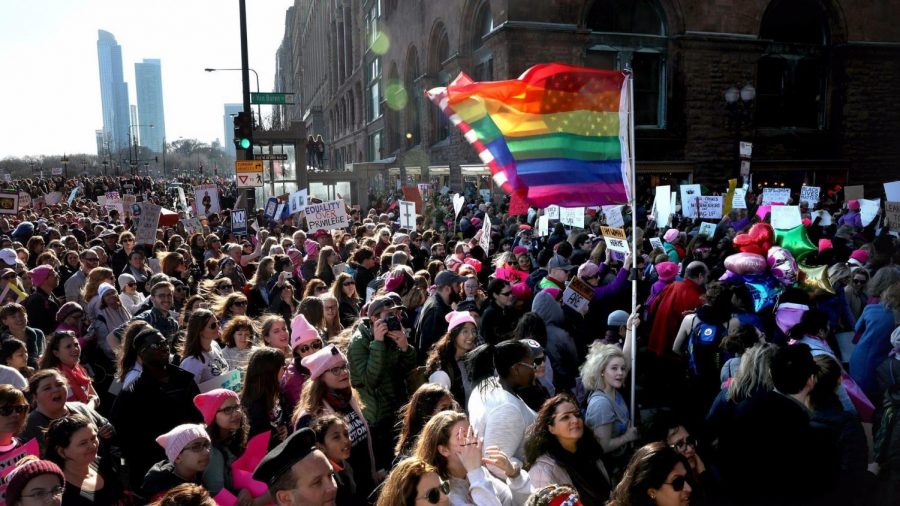Men and women unite at Women’s March
February 14, 2018
Men and women across the nation marched to raise awareness for women’s rights and other issues in the streets of New York, Chicago, Washington D.C., Los Angeles and many other on Jan. 21. Sister marches were also held in Canada, Italy, the UK and other countries.
A year ago, The Washington Post reported that approximately 3 to 5 million people protested following Trump’s inauguration. This worldwide protest was directed at President Trump’s views on issues such as women’s rights, the LGBTQ community, immigration policies and his alleged intolerance towards people of color and religions such as Islam. Although there is no official countrywide estimate of the number of people who participated this year, according to The New York Times, this year, more than 200,000 protesters attended the March in New York, 600,000 in Los Angeles and 300,000 in Chicago. People of all age, children to adults, came forward hoping to make a change. The second annual Women’s March was given a boost by the #MeToo movement. The movement encouraged women to come forward after sexual harassments by men, in particulara and pushed activists to demand for a deeper political and social change as well.
When asked how the #MeToo movement affected the march, sophomore Deborah Mensa looks at it both ways. She expressed how politics and the media affects her point of view.
“The movement was an awesome movement until men as a whole got called out. I believe any woman that accuses anyone. But if someone is lying about issues like this, it’s wrong,” Mensa said. “I thought Bill Cosby was an awesome person, but after accusations came out, I was in disbelief. At this point, I can’t trust Hollywood. Later, President Trump made some uncomfortable comments on women which made me think that I can’t trust politicians.”
President Trump tweeted a day before that it was a “perfect day for all Women to March” and “to celebrate… economic success and wealth creation that has taken place over the last 12 months.” Marchers criticized Trump’s views by carrying signs that read, “Stop pretending your racism is patriotism” and “Today we march, tomorrow we run for office.”
Sophomore Emilly Cantu felt strongly about women coming forward to march.
“The Women’s March is a great movement because it shows that women are influential and they too can fight,” Cantu said. “It is truly empowering to see women protest such important issues.”




